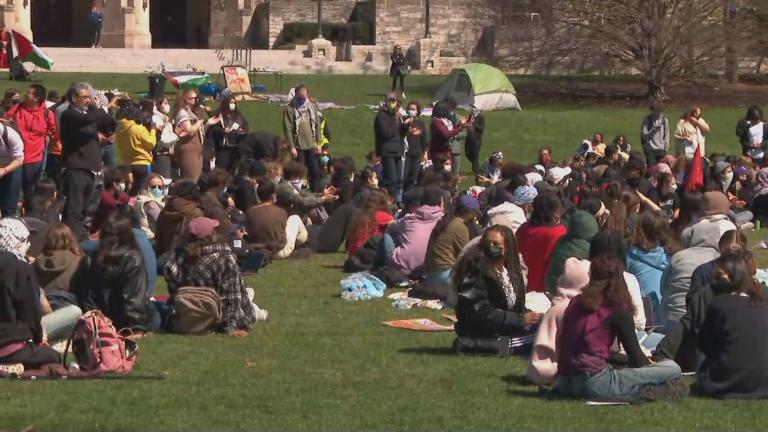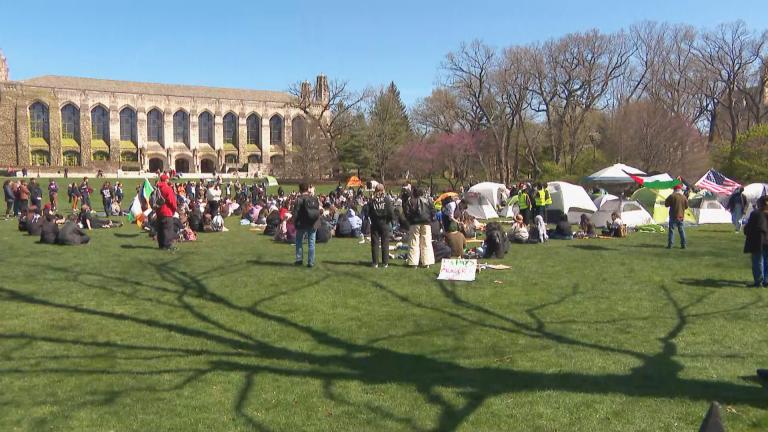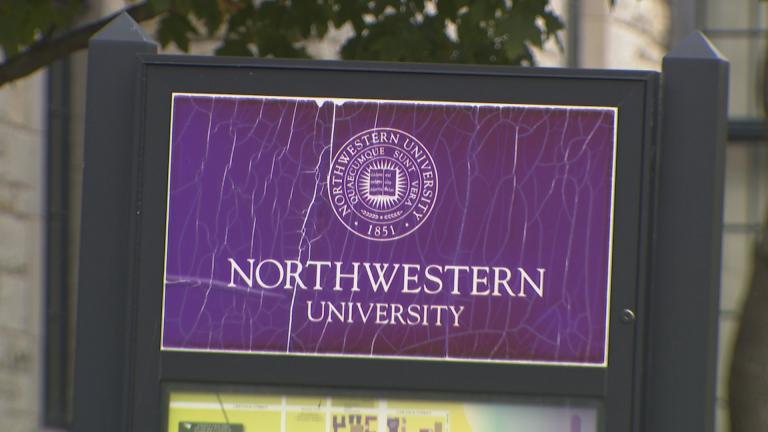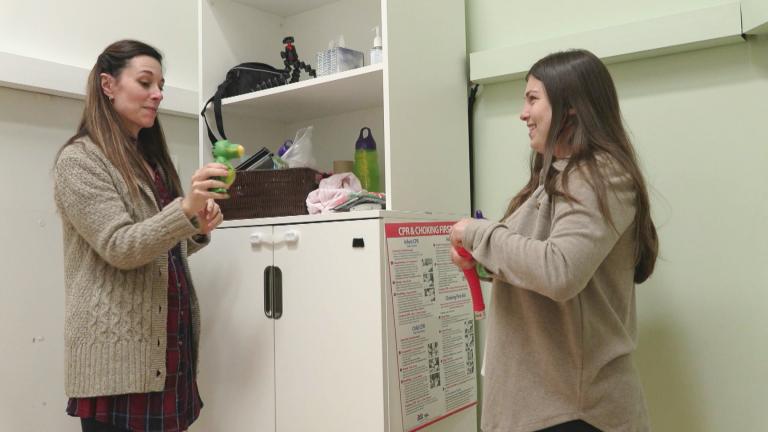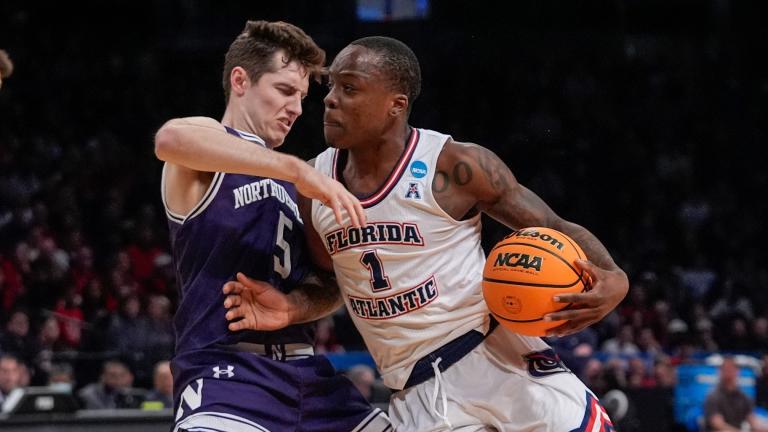 A rendering of a planned new Ryan Field in Evanston. (Credit: Northwestern University)
A rendering of a planned new Ryan Field in Evanston. (Credit: Northwestern University)
Northwestern is set to spend $800 million to rebuild Ryan Field, but in the wake of a hazing scandal that led to the firing of head football coach Pat Fitzgerald, a group of professors is asking university officials to put those plans on hold.
Six tenured Northwestern professors wrote an open letter this week to President Michael Schill, Athletic Director Derrick Gragg and board chair Peter Barris urging the university to “halt that planning and marketing process until this crisis is satisfactorily resolved.”
“Over the past decade, Northwestern has made major and high-profile investments in athletics. But disturbing evidence of harassment and abuse — and high-level efforts to minimize those problems — suggest that we need to get the existing house in order before expanding it,” the professors — Caitlin Fitz, Elizabeth Shakman Hurd, Kate Masur, Susan Pearson, Amy Stanley and Jessica Winegar — wrote in the letter this week.
“We share an interest in ensuring the future success of NU athletics, and in stellar facilities where our students can compete on the highest level. But first, we must ensure that our Athletics Program enables all our students to thrive.”
Northwestern unveiled its plans last year to tear down the existing Ryan Field and replace it with a state-of-the-art stadium by 2026. Last October, Fitzgerald told WTTW News he believed that facility would be “more than just a football stadium” and would become “an amazing community asset.”
But earlier this week, Schill announced the university had fired Fitzgerald as new details continue to emerge about a hazing scandal that allegedly went on for years and included “forced participation, nudity and sexualized acts of a degrading nature.”
Fitzgerald was originally suspended for two weeks after the school said Friday that an investigation led by attorney Maggie Hickey of law firm ArentFox Schiff did not find “sufficient” evidence that the coaching staff knew about ongoing hazing — though there were “significant opportunities” to find out about it.
Fitzgerald pointed to Hickey’s investigation as confirmation that he had no knowledge of any hazing within the program. He said in a statement that he had instructed his attorney Dan Webb to “take the necessary steps to protect my rights in accordance with the law.”
With less than two months until the start of Northwestern’s 2023 football season, Gragg on Tuesday reportedly informed the football team’s assistant coaches and support staff that they will be retained for the 2023 season. The university itself has not made any such public announcement on that decision.
Fitzgerald was an All-American linebacker on the 1995 Northwestern team that won the Big Ten and played in the Rose Bowl after years of losing.
He went 110-101 in 17 seasons as the head coach at his alma mater. He led the Wildcats to Big Ten West championships in 2018 and 2020, plus five bowl victories. But they went 4-20 over his last two seasons.
David Braun, who was hired in January to serve as the team’s defensive coordinator, has reportedly been tapped to fill-in as head coach on an interim basis.
The Associated Press contributed to this report.
Read the professors' full letter to Schill, Gragg and Barris below:
Dear President Schill, Dr. Gragg, and Mr. Barris,
We are a group of six tenured faculty members who are concerned about the culture of athletics at Northwestern. In 2021, we drew attention to abuses on the Northwestern cheer squad and to the misguided selection of Mike Polisky as Athletic Director after he was implicated in Northwestern’s failure to adequately respond to the cheerleaders’ allegations.
We are dismayed to find Northwestern Athletics embroiled in another major scandal that involves allegations of sexual abuse and harassment as well as negligence or indifference among administrators and coaches. We call on Northwestern leadership to take immediate, comprehensive steps to remedy the current situation and to protect all student athletes from future abuse.
The first step is transparency. The findings of the investigator should be made public to the fullest extent permitted by law, contingent on the consent of the victims. It is essential to learn what was known by NU coaches, staff and administrators, and when, and what steps were taken or not taken to address hazing on the football team. The broader community of NU students, staff, alumni, faculty, and donors deserves to know what occurred, in part so that we can ensure it never happens again.
Next, we call on the administration to provide all necessary support to the students who experienced hazing and trauma. They should be reassured that they will not face retaliation from the administration or their peers, and they should be guaranteed full access to any mental health support they require. We applaud the courage of the athletes and staff members who have come forward, and we salute NU student journalists for their work bringing the details of the allegations to light. We also call on the administration to encourage the perpetrators and enablers of the abuse to acknowledge what they saw and did, and to apologize.
Looking ahead, we strongly urge university leadership to protect student athletes by ensuring that the Athletics Department abides by Northwestern’s principles of moral integrity, honesty, and responsibility. The Department is staffed by professionals who care about athletes’ well-being, but the potential for abuse is also immense. In 2021, it was clear to us that many student athletes felt uncomfortable coming forward with concerns about behaviors they witnessed or pressures they experienced, fearing retaliation or ostracism. Putting a competent outside observer in the football locker room will help mitigate the issue that brought us to this crisis. But we believe greater oversight of the Athletic Department is needed, perhaps through the creation of a dedicated ombudsperson or office and a widely publicized tip line.
Northwestern recently announced plans for an $800 million rebuild of Ryan Field. We believe the university should halt that planning and marketing process until this crisis is satisfactorily resolved. Over the past decade, Northwestern has made major and high-profile investments in athletics. But disturbing evidence of harassment and abuse – and high-level efforts to minimize those problems – suggest that we need to get the existing house in order before expanding it. We share an interest in ensuring the future success of NU athletics, and in stellar facilities where our students can compete on the highest level. But first, we must ensure that our Athletics Program enables all our students to thrive.
Finally, we welcome more information about our football program’s leadership. After heading our football program for seventeen years, Coach Fitzgerald is responsible for the culture and behavior of his team. He must be held accountable. Unless the university presents compelling evidence that Coach Fitzgerald proactively and systematically worked to prevent abuse and investigate potential hazing throughout his tenure - and hold the perpetrators and any knowing staff members accountable once he learned of misbehavior - we have no confidence in his ability to protect our students and represent the university’s values.
We were heartened by President Schill’s recent message to the NU community, acknowledging that the sanctions against Coach Fitzgerald have been inadequate. We trust that you share our concerns and that you and other members of Northwestern’s leadership will take comprehensive action to right past wrongs and create a better future for all our students.
Sincerely,
Caitlin Fitz, Associate Professor of History
Elizabeth Shakman Hurd, Professor of Political Science and Religious Studies
Kate Masur, Professor of History and Board of Visitors Professor
Susan Pearson, Professor of History
Amy Stanley, Wayne V. Jones II Research Professor of History
Jessica Winegar, Professor of Anthropology

